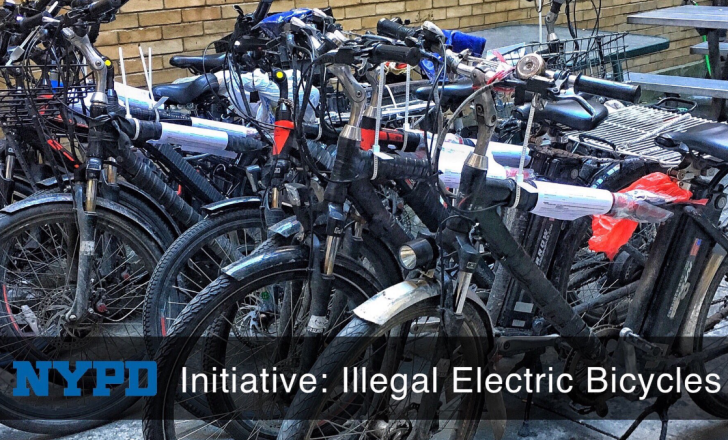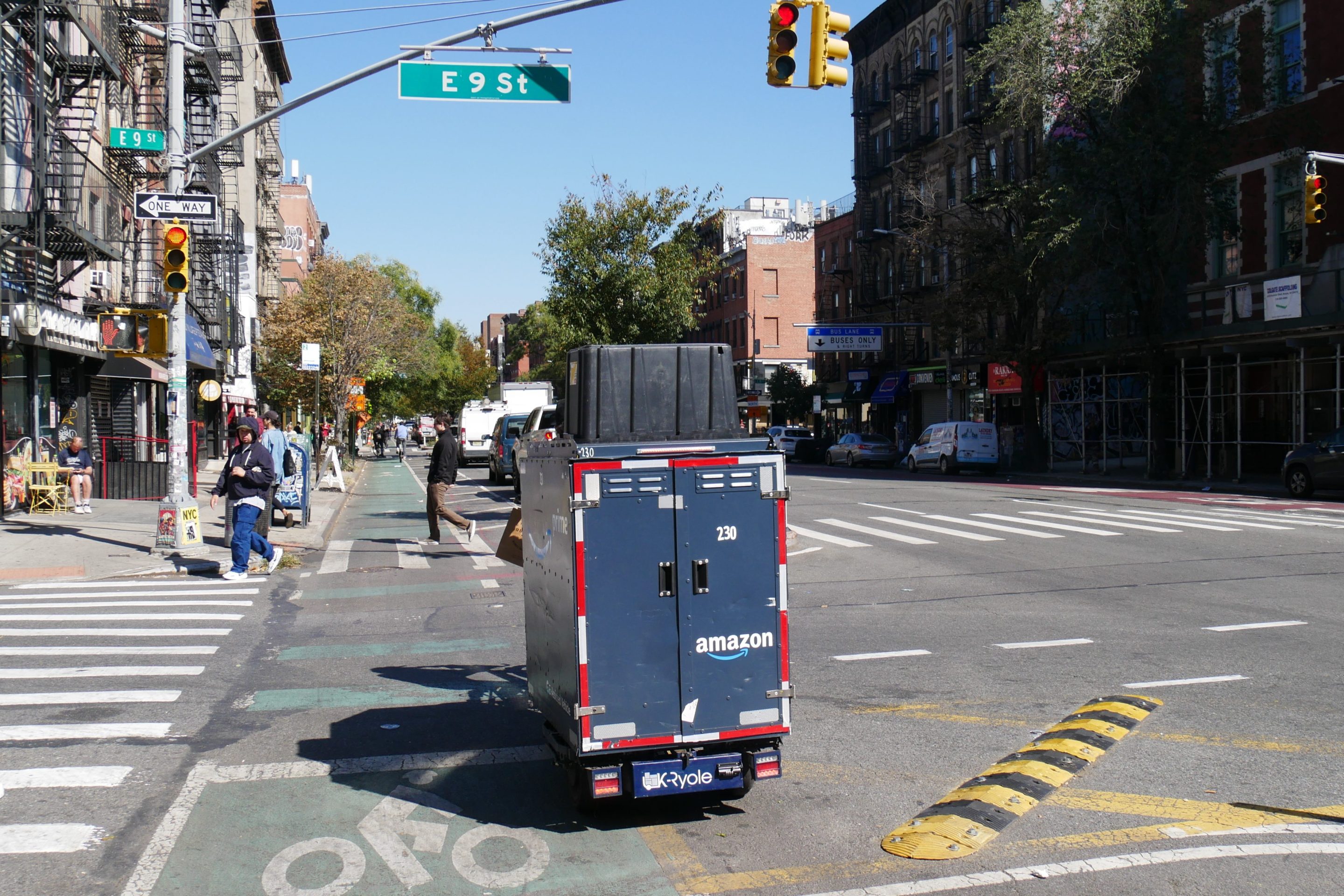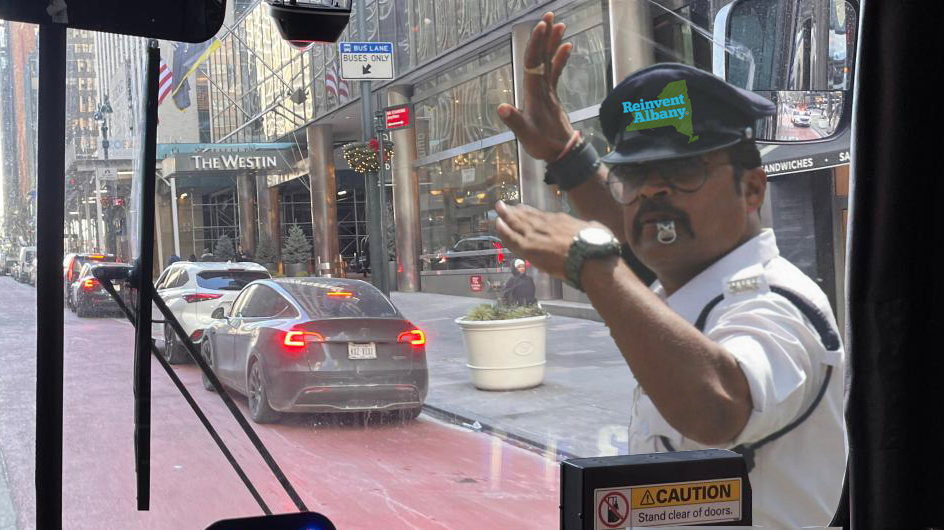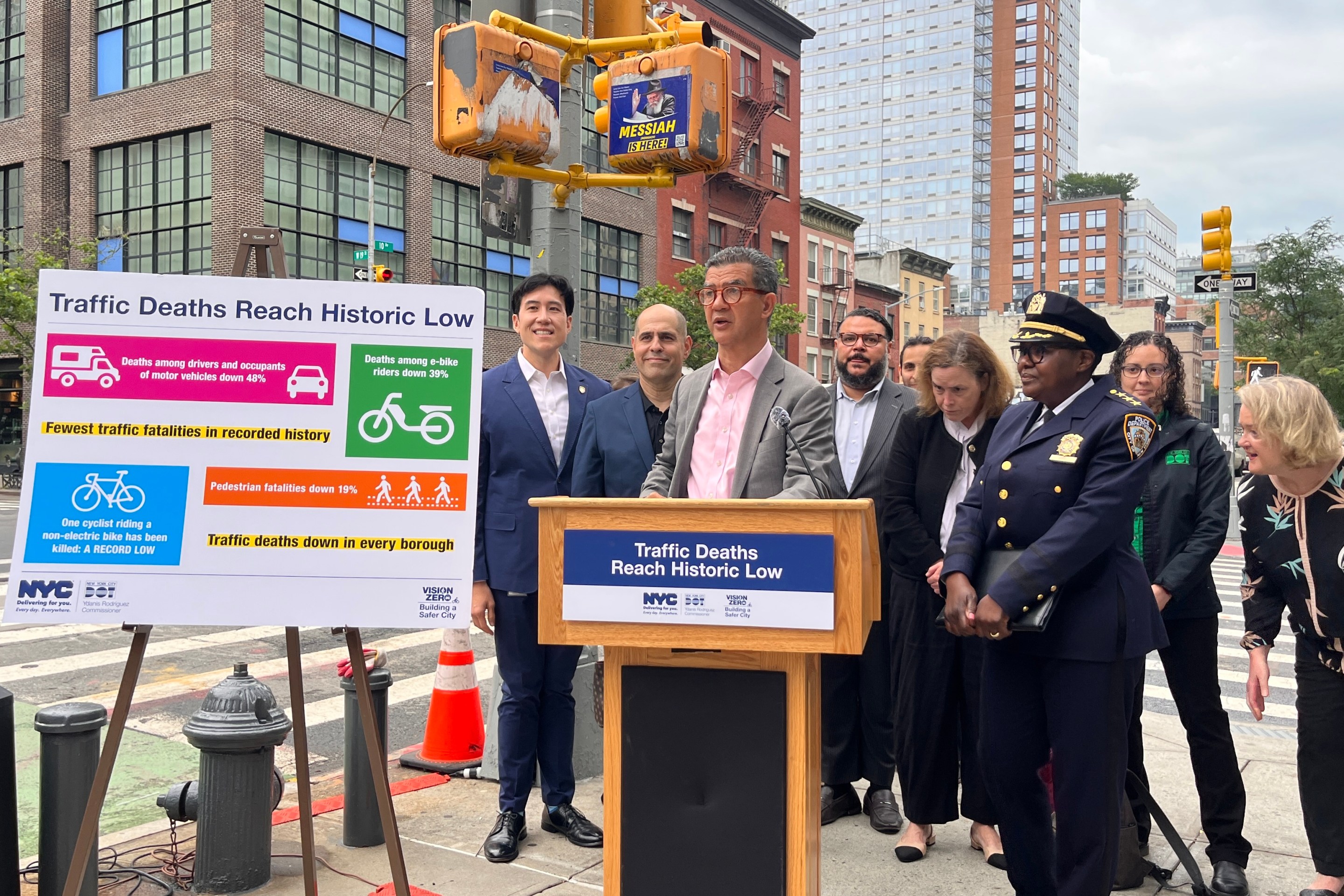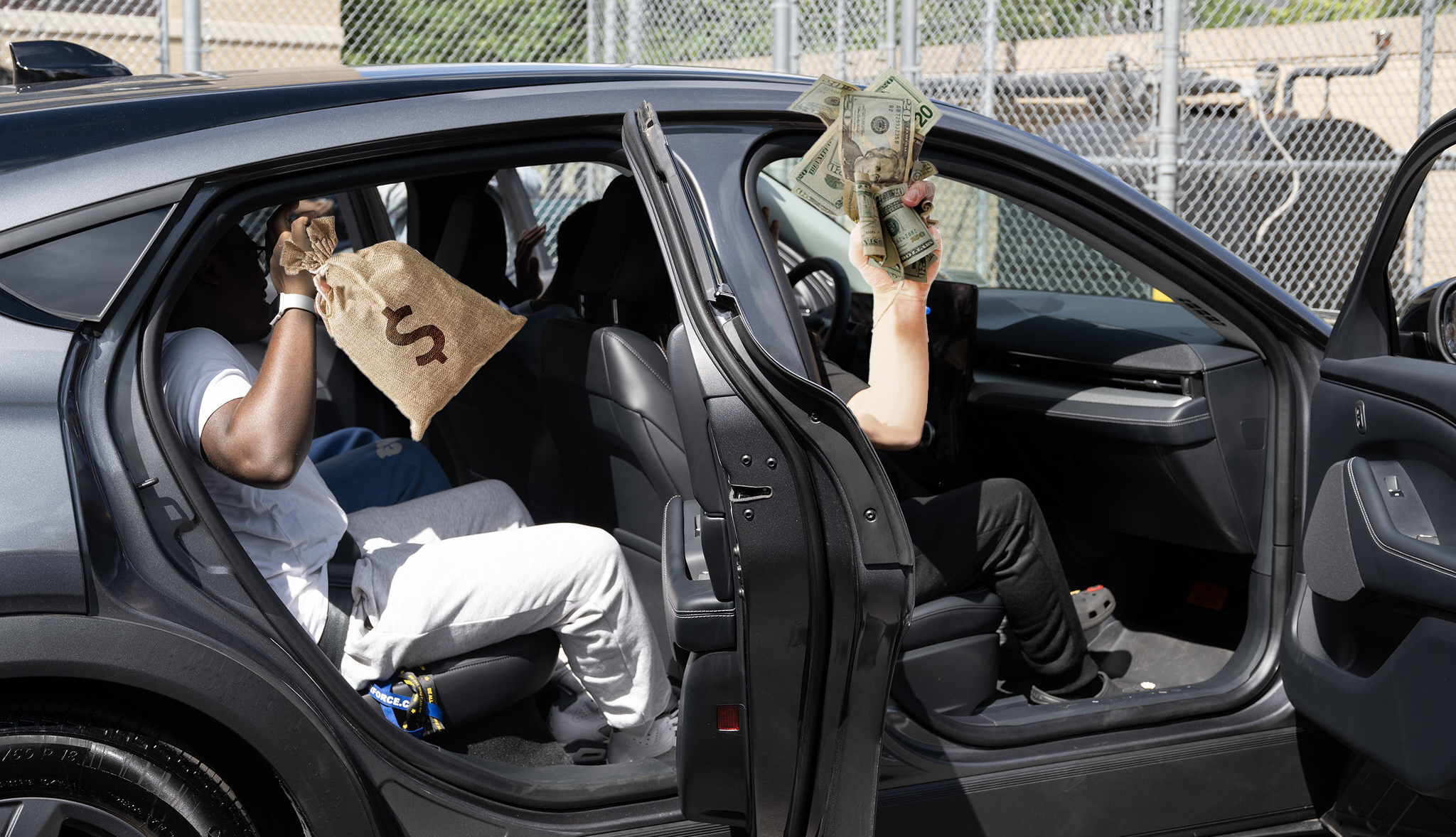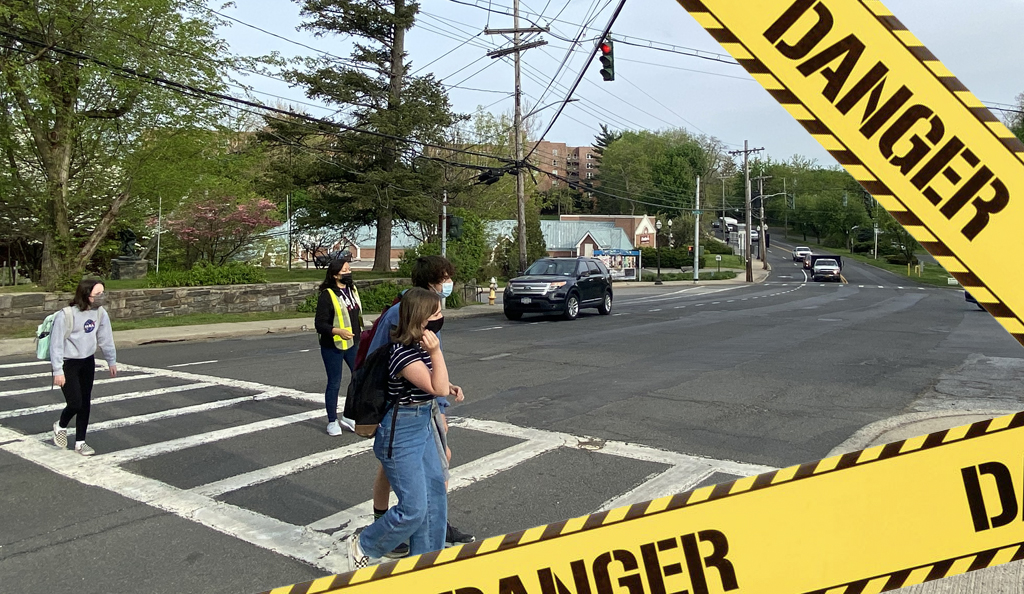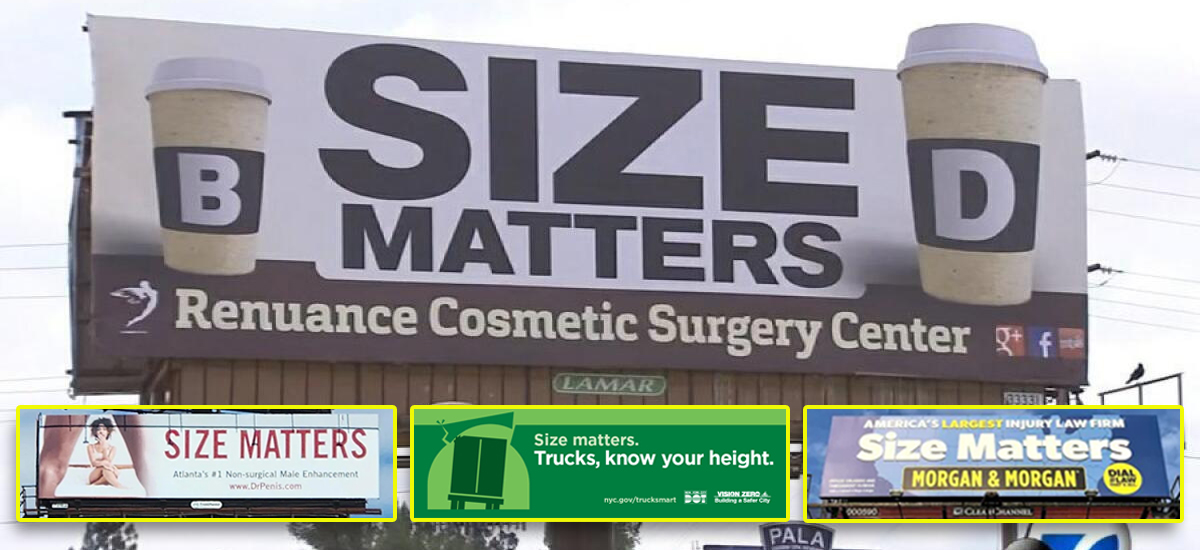Will this be the year Albany legalizes electric bicycles in the state of New York?
E-bikes are everywhere on NYC streets, and delivery workers, especially, rely on them. But they have never been legal in New York despite 2002 federal legislation classifying electric bikes of certain speeds as regular bicycles.
This has opened the door for draconian NYPD sweeps targeting deliver cyclists. Merely operating an e-bike can result in seizure of the vehicle and steep fines, even if the owner was obeying all traffic laws. The financial penalties are much more severe than if police approached e-bikes like other bicycles and enforced infractions like biking on the sidewalk.
In addition to serving as a smaller, less polluting delivery option than gas-powered scooters, e-bikes have the potential to make cycling for transportation accessible to older New Yorkers and other people who may benefit from less physical exertion while pedaling. But there is resistance from NYPD as well as questions about whether e-bikes belong in bike lanes with conventional bicycles.
Electric-assist bicycles are the main source of global growth in the bike industry. In the U.S., bike makers and retailers have focused recent state-level lobby efforts on New York and California with the hope of setting precedent for other states, according to New York Bicycling Coalition Executive Director Paul Winkeller, whose group has received a "small" amount of industry funding to help with advocacy.
California legalized e-bikes in 2015, and for years, New York legislators have put forward bills to make e-bikes legal here. Some years, the bills passed the Senate or Assembly, but never both chambers.
Legislation has typically been introduced in the Assembly by transportation chair David Gantt, of Rochester, and in the State Senate by Brooklyn rep Martin Dilan. The language has shifted over the years, but the proposal that passed the State Senate last year before dying in the Assembly would have classified "electric bicycles" as any bicycle with a motor of no more than 750 watts and a peak motor-assisted speed of 20 mph. For reference, the bicycles typically used by delivery workers max out at 250 watts.
That bill ran into opposition from the NYPD's legislative staff, who wanted to make tampering with the technology or label a misdemeanor, according to Winkeller.
"We're not really sure what the intent of the NYPD was by suggesting that change," said Winkeller, but it effectively nixed the bill. "The program staff at the Assembly level who monitor legislation said, 'That's ridiculous, we're not gonna accept that language,' and they killed it."
This year, there are bills in both houses. Assembly Bill 1018 and its companion in the State Senate, proposed by Gantt and Dilan, resemble last year's bill. The bill would require riders and passengers to wear helmets and be over the age of sixteen, or else face a $50 fine.
Another proposal, from Senator Thomas O'Mara, would legalize "class one" electric bicycles, which only deliver assistance when the rider is pedaling and cannot go faster than 20 mph. O'Mara's bill would also allow New York City and other municipalities to create their own rules guiding e-bike use on city streets and greenways.
That's more in line with advocates' priorities in New York City, but Transportation Alternatives has endorsed both bills. "We are supporting the Dilan/Gantt legislation, but believe a focus on non-throttle max 20 mph-assist bikes are the way to go," TransAlt Legislative Director Marco Conner told Streetsblog,
